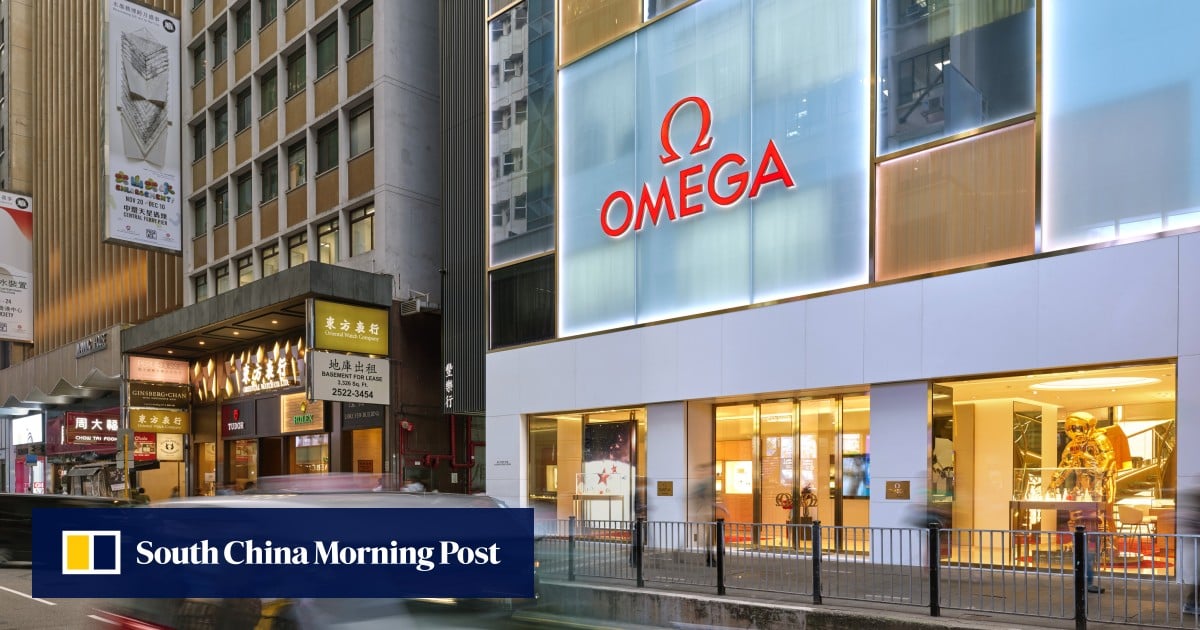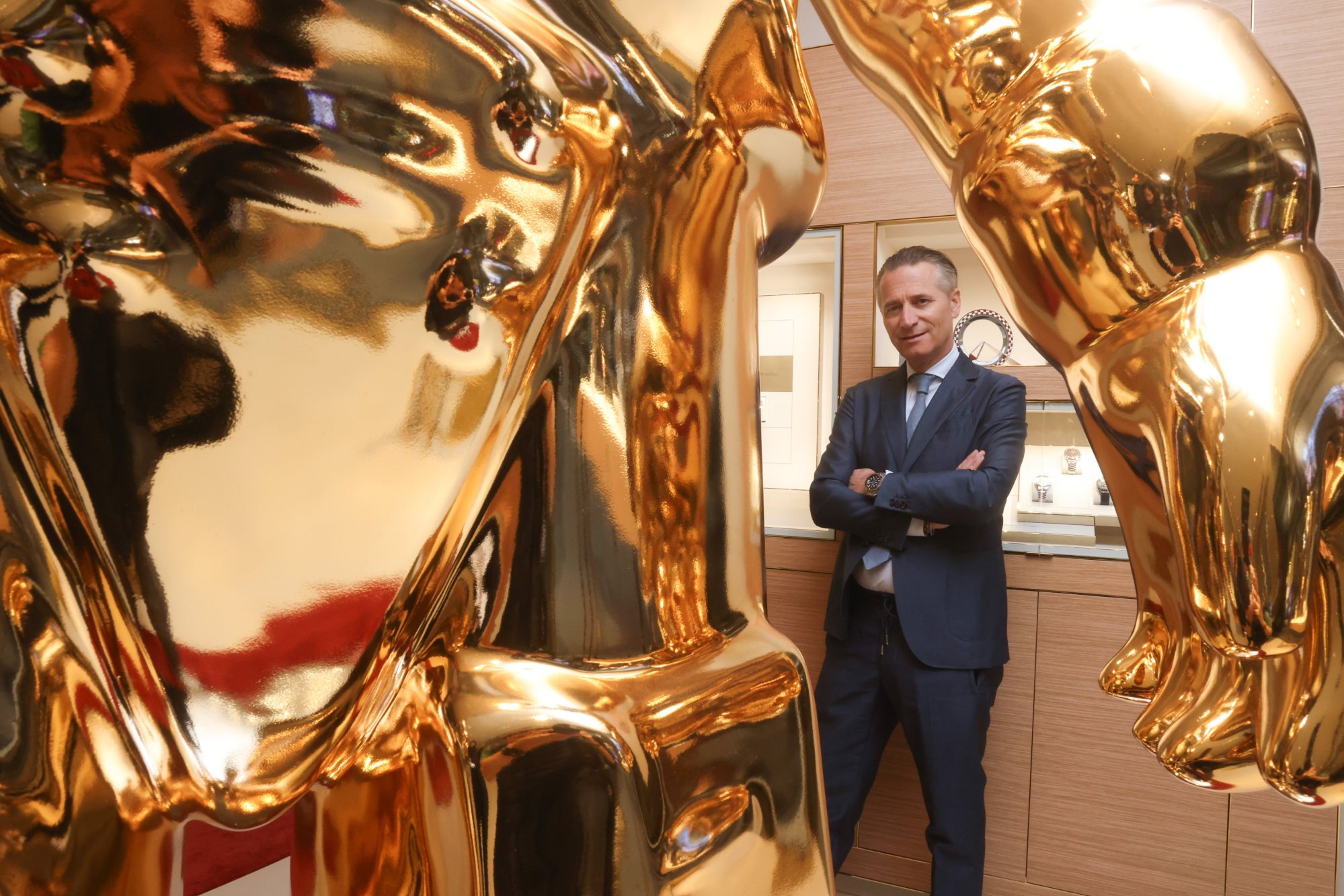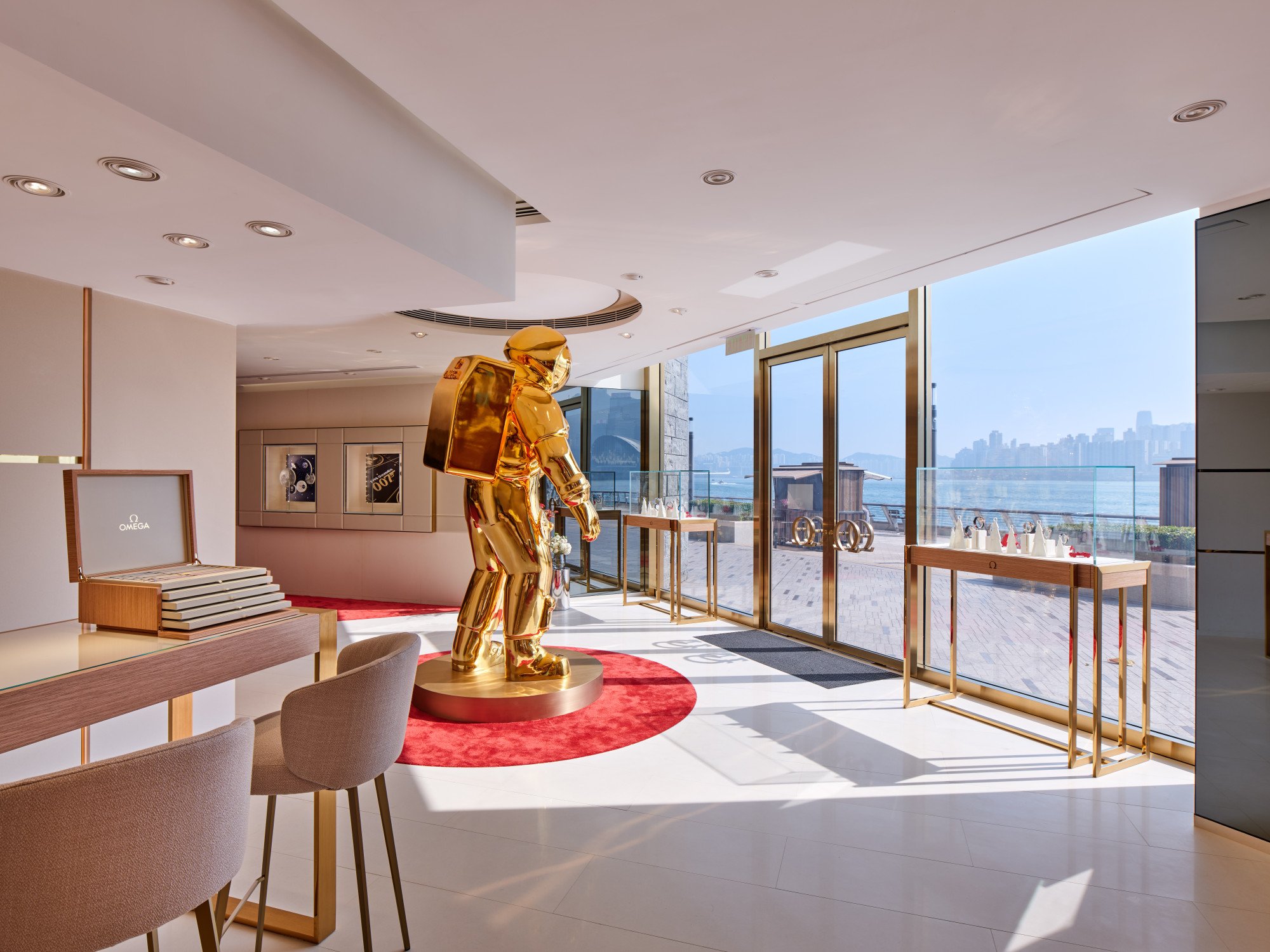
04 Mar Gloomy Hong Kong retail sector gets Swiss watchmaker Omega’s vote of confidence as it opens glitzy shops in Central, K11
The brand, famously known for its Speedmaster and Seamaster watches as well as being the timepiece preferred by fictional British spy James Bond, opened two boutiques in December: a 5,102 sq ft, four-storey shop in Central and a 5,565 sq ft, two-storey space in K11 Musea in Kowloon.
“It’s a long-term investment,” said Raynald Aeschlimann, the company’s Switzerland-based president and CEO. “Hong Kong has become one of the destinations of a lot of people, not only Chinese people, and it’s good to be present here in the best way, and in the same way we are in Shanghai and the same way we are in Macau.”
Omega’s confidence in the Hong Kong retail segment comes at a time of uncertainty for the city’s tourism-reliant retail sector, as spending by visitors is unlikely to grow this year, according to government estimates.

The Hong Kong Tourism Board has forecast that 46 million people will visit Hong Kong this year, 35 per cent more than last year but still just 70 per cent of the 65 million tourists who came in 2018. Compounding the problem, estimated spending per overnight visitor is expected to shrink by as much as 16.4 per cent to HK$5,800 (US$741) this year from HK$6,939 in 2023.
Those facts do not bode well for the industry. Mainland tourists accounted for 30 per cent of all retail spending in the city before the Covid-19 pandemic hit in 2020, according to commercial property agent CBRE.
In the first six months of 2024, rents will rise between 2 per cent and 7 per cent, the property consultancy forecasts.
Mainland F&B brands’ influx may boost Hong Kong retail property market: analysts
Mainland F&B brands’ influx may boost Hong Kong retail property market: analysts
Omega is not planning to abandon the space, Aeschlimann said.
“We have a wonderful store in Causeway Bay where we are also very well presented,” he said.
Omega’s other exclusive stores in Hong Kong are in Pacific Place in Admiralty and at the Hong Kong International Airport. The brand is part of the Swatch Group, which also owns luxury watch brands including Tissot, Rado and Longines, as well as high-end jewellery maker Harry Winston.
Aeschlimann is adamant that Omega’s bet on Hong Kong is not related to the decline in rents in what used to be the world’s most expensive market. The brand has always believed in the city’s consumers, not just its big-spending visitors, he said.
“We don’t live only on tourists, and that’s why it’s easy to stay in Causeway Bay,” he said. “If we go only for [low rent], then we would be two streets behind our shop here in Central. We have been able to secure our new locations at a reasonable price … But if you only go by [rent], that wouldn’t be Omega. We prefer to be pioneers, and make the decision of going where our customers are.”

The Central location has a traditional storefront and customer service area on the first three floors, with the fourth floor hosting “The Suite”, complete with a lounge, cocktail bar, dining area and screening room.
The K11 Musea shop, meanwhile, takes advantage of sweeping harbour views, using a spiral staircase to take guests from a reception area to a second-floor bar and dining space that also has a watchmaking salon.
The city’s government has been making an aggressive push to lure tourists from other parts of the world beyond the mainland, an initiative that should further open Hong Kong to travellers from the Middle East and Southeast Asia, said Lawrence Wan, senior director, advisory and transaction services, retail, at CBRE Hong Kong.
